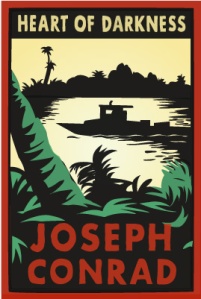Today, my favorite song is “93 Million Miles” by Jason Mraz.
Not only is it sentimental, optimistic, and of the perfect pedaling rhythm for any cycling playlist, it also makes general cosmic distances (like the 93 million miles between the earth and the sun) easier to remember.
Strangely, that’s not something you can say of many pop songs.
I say “today” because yesterday my favorite song was “Elephants” by Rachael Yamagata. Ask me tomorrow and the answer is as likely to be a wordless tune from some obscure television show as it is to be anything written by Puccini or Dr. Dre. Media is a marvelous thing that way. Be it music or art or literature, it grows and changes as often as we do. Something you heard ten years ago may tomorrow become the most meaningful thing in the world for no reason at all and you’ll never have to make excuses for it. That’s why I can – with the honesty of Abe himself – point to Watership Down, Tale of the Firebird, and any number of Trixie Beldens, Nancy Drews, or stints through the Hundred Acre Wood as being THE story. The one that meant the world. The one that changed everything.
Heart of Darkness is no exception to my casual use of terms like “most-loved” and “life-changing.” A school assignment, I can confidently say I never would have sought out Joseph Conrad’s adventure through the African Congo on my own. But it was so rich in subtext that I didn’t complain about it nearly as much as teenage me was capable of complaining. Quite the opposite. Heart of Darkness gave me something unique because it was the first time I truly enjoyed the study of a book. Every sentence became an adventure to uncover what was lying underneath. And that sense of adventure was of course mirrored by Mr. Marlow’s trip into the unknown.

You could say that this doesn’t really measure up to the idea of “life-changing,” and you’d be right. But Heart of Darkness led me to Lord Jim. Which led me to Moby Dick. Which led me to Master and Commander. Which led me to the realization that maybe I had a thing for boats, hard-headed captains, and flights of fancy. Before I explain how I now write about all of these things (albeit in anthropomorphic form) in The Sons of Masguard – which is nothing if not proof that every book you will ever read has the power to be influential – you should know that Googling “psychiatric help for nautical obsessions” is less than helpful and inexplicably leads to an article about Captain Crunch.
My point certainly isn’t that everyone is as fickle as I am (honestly, I’m already on my way to changing that first song to “Weird Beard” by the Mad Caddies) or that there is anything wrong with Captain Crunch. But we are complex creatures who can never say for certain just where we’re going to end up. This unpredictable life is full of life-changing books, songs, poems, and paintings, if only we’re willing to let them find their meaning in their own place and time. Who knows? That reading assignment you’re groaning about today may one day be the reason you get to eat something more than the breakfast cereal at the wrong end of some poor schmuck’s midnight research.
That’s right, universe.
You fed me a flawless classic with widespread appeal and were given a snarky series about otter pirates in return.
You’re welcome.

No comments:
Post a Comment
Leave ye scrawlins 'ere, but mind that ye treat one another wi' decency, yeah?